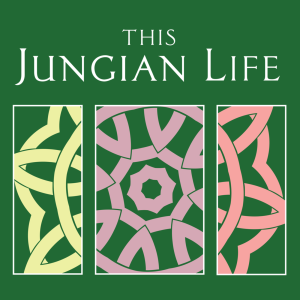
The Conjunction of Art and Life with Peter Kramer
 2023-07-27
2023-07-27
"Death of the Great Man" by Dr. Peter D. Kramer offers a glimpse into the character disordered alpha narcissist. It is more than a satirical political commentary on Donald Trump. It points us to a broader discourse on power dynamics in the collective psyche, the potential for authority to corrupt our humanity and the dangerous ways we escape from freedom by surrendering self-responsibility.
The unique blend of psychiatric insight and literary narrative brings an unusual depth to the work. The narrator, psychiatrist Henry Farber, places the reader at his side, admitting his negative reactions, offering psychotherapeutic framing, and struggling to bear the suffering the Great Man inflicts on him.
The reader is quickly shifted into the traumatic constellation of the fictional universe. It functions like a dream within a dream. The clarity of the narrator’s perspective can only be achieved by later reflection and metacognition, processes Dr. Kramer invites forward in the reader through the great indirect tradition of fairytales and storytelling. Striking images of the psychological toll of oppressive rule, mental illness, desperation, and dissent, force the reader to face their vulnerabilities. The reality principle, a center point in Freud’s theory, calls us to adjust to the demands of the outer world with minimal evasion. Kramer’s novel invites the reader to tolerate facing the recent cultural/political tumult through the safety of fiction—offering a way to bear the anxiety of declining democracy.
Paranoia is passed from character to character throughout the novel, like a burning coal. The array of character responses subtly educates the reader. The inflation of the Great Man, the fawning of Naomi, the opportunism of Beelzebub, and the grief of Henry are like a cast of inner figures in the reader's mind differentiating the range of defenses and compensations any of us might experience when placed in intolerable circumstances.
Ultimately, we find ourselves reflected not just in the characters but in the underlying human realities they represent: our thirst for power, our susceptibility to manipulation, our struggle with identity, and our ongoing quest for truth and resilience in the face of adversity. The book questions our understanding of the world and ourselves within it. It underscores how we are at once actors and spectators in the theatre of life, continuously influenced by and influencing the world around us. His narrative is an insistent reminder of our shared humanity, our collective responsibility to safeguard democratic values, and our capability to challenge and reshape narratives imposed upon us. We are reminded that resilience is not just a personal quality but also a societal one. We learn that identities are not fixed but fluid, forged in the crucible of personal experience and societal pressure. We are shown the insidious danger of unchecked power and the corrosive effects of manipulative propaganda. Ultimately, we can learn to be more discerning about the stories we tell and accept, more compassionate about the shared trauma we may encounter, and more committed to safeguarding the principles underpinning our society.
BECOME A DREAM INTERPRETER: We’ve created DREAM SCHOOL to teach others how to work with their dreams. A vibrant community has constellated around this mission, and we think you’ll love it. Check it out.
PLEASE GIVE US A HAND: Hey folks -- We need your help. So please BECOME OUR PATRON and keep This Jungian Life podcast up and running.
SHARE YOUR DREAM WITH US: SUBMIT YOUR DREAM HERE FOR A POSSIBLE PODCAST INTERPRETATION.
SUGGEST A FUTURE PODCAST TOPIC: Share your suggestions HERE.
FOLLOW US ON SOCIAL MEDIA: FACEBOOK, INSTAGRAM, LINKEDIN, TWITTER, YOUTUBE
INTERESTED IN BECOMING A JUNGIAN ANALYST? Enroll in the PHILADELPHIA JUNGIAN SEMINAR and start your journey to become an analyst.
YES, WE HAVE MERCH! Shop HERE
More Episodes
 2024-02-01
2024-02-01
 2024-01-18
2024-01-18
 2023-12-28
2023-12-28
 2023-11-30
2023-11-30
 2023-11-23
2023-11-23
Create your
podcast in
minutes
- Full-featured podcast site
- Unlimited storage and bandwidth
- Comprehensive podcast stats
- Distribute to Apple Podcasts, Spotify, and more
- Make money with your podcast
It is Free
- Privacy Policy
- Cookie Policy
- Terms of Use
- Consent Preferences
- Copyright © 2015-2024 Podbean.com


